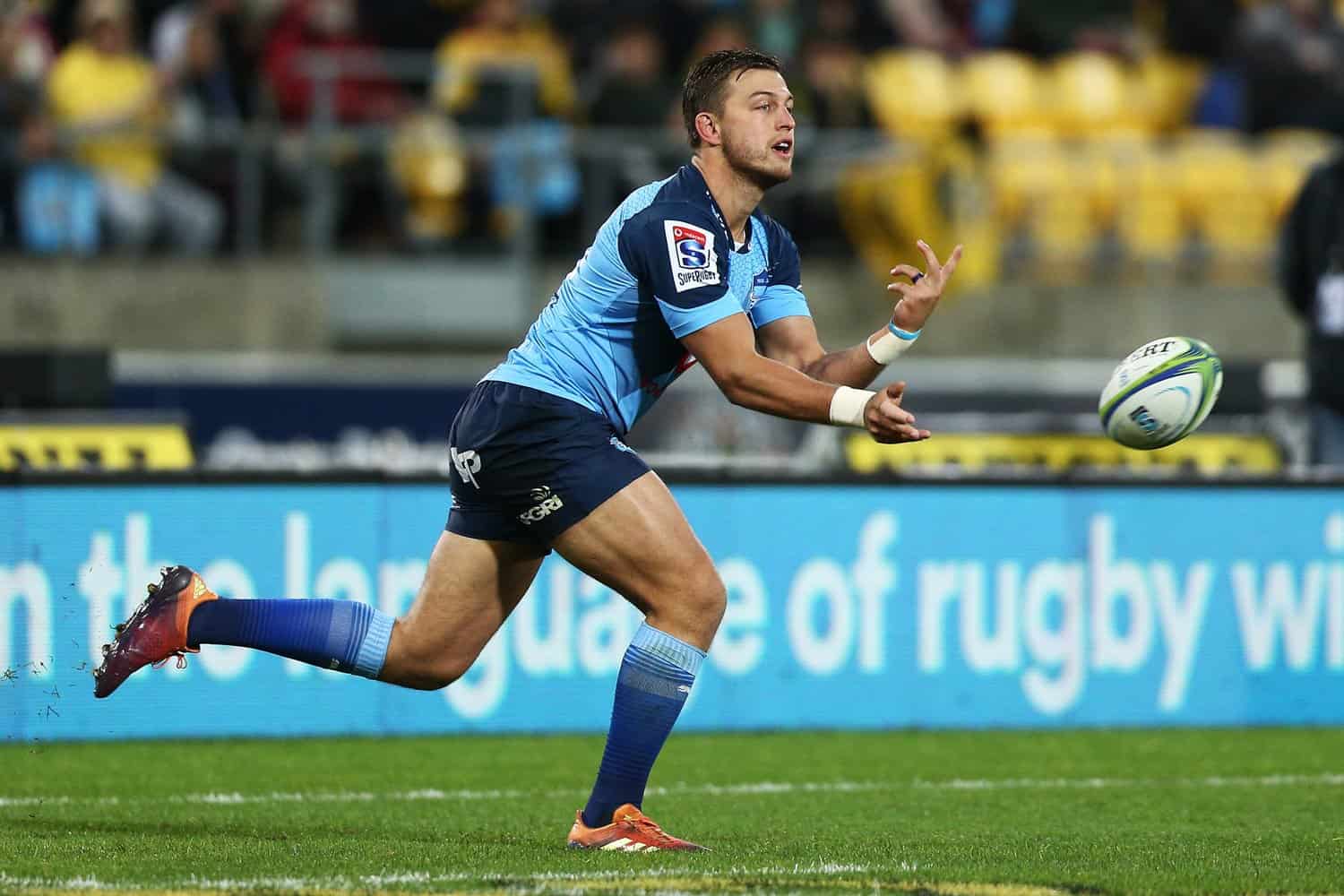The story of Sharks and Bulls URC Preparations is one of resilience meeting opportunity, with two South African giants taking very different paths into the new United Rugby Championship season yet chasing the same surge of momentum. There is optimism in both Durban and Pretoria, but it comes layered with real-world setbacks, hard-earned lessons and the quiet urgency that always precedes a campaign that will test depth and belief.
Sharks find steel amid early setbacks
Timing matters in rugby, and few arrivals feel more timely for the Sharks than the seasoned presence of Marvin Orie. After a brief stint with the Bulls during the Currie Cup, the Springbok lock has settled in Durban, where his experience lands as both a tactical boon and a much-needed salve for a bruised second row.
The reason is painful and personal. Emile van Heerden suffered what looked like a serious shoulder injury in the final Currie Cup fixture that doubled as a URC warmup against the Pumas. Head coach John Plumtree offered a glimpse into the human toll of another spell on the sideline for the young lock, and you could hear the empathy in his voice.
“I feel so sorry for Emile, he has had so many injuries and I spoke to him after the game and told him how much I feel for him at this time.”
Van Heerden, son of former Western Province captain and Springbok Fritz van Heerden, was hurt while the Sharks XV edged the Airlink Pumas 19-14. It was a scrappy opener, as most first hit-outs are, but there were encouraging sparks even with Jordan Hendrikse only due back this coming week. Flyhalf Siya Masuku looked assertive in directing traffic, and young scrumhalf Ceano Everson injected pace and control off the bench.
Jean Smith, son of Franco, is another talent who caught the eye with a composed outing against Boland earlier in the build-up. A bout of flu kept Jean Smith out of the Saracens and Pumas matches, yet his pre-season promise suggests Plumtree has another playmaking option ready to grow into the jersey.
If the Sharks needed a signal of returning star power they found it in George. Bok centre Lukhanyo Am, coming off a long injury layoff, completed the first half as planned against Saracens for a Sharks Invitational side. Jason Jenkins also banked minutes in that opening stanza as the Durban side builds its lock resources again. The visitors from London won that friendly 38-26, but the Sharks got exactly what they wanted from the night, a clean step forward for two heavy hitters.
There is youthful intrigue on the edges too. Phikolomzi Sobahle has flashed speed and awareness on the right wing, while the tall, powerful Paschal Ekeji brings menace in the air and a straight-running threat that unsettles defenders, even if his skill set still needs finessing. Sevens livewire Christie Grobbelaar added a neat attacking touch against Saracens, popping up in the line and helping create an early corner try for Jaco Williams.
The next checkpoint arrives in the Southern Cape. The Sharks will take on the DHL Stormers in George this weekend, and that selection conversation should widen with several names who sat out the last outings, among them Jurenzo Julius. It is another test of combinations, and one more chance to assess new faces in the pressure of a South African derby rhythm.
Plumtree’s group has also been lifted by the emergence of Junior Springboks in key roles. Flanker Matt Ramoa has earned the nickname The Silent Assassin for his understated yet effective work in the Currie Cup, while fellow Junior Bok Albie Bester has impressed in the No 12 jersey. These are the sorts of internal wins that tend to matter by the time winter bites.
There is still a cold ledger to balance. Hooker Ethan Bester is only expected back in December, Corne Rahl is also out, and the Sharks will be without their Springboks for the first phase of the URC, which overlaps with the closing rounds of the Rugby Championship. To steady the early weeks, Plumtree is leveraging a strong relationship with the Pumas to arrange loan reinforcements, and some Griquas might follow depending on their Currie Cup run, with deals set up on a temporary basis.
Then comes the gauntlet. In their first three league fixtures, the Sharks will face recent champions Glasgow Warriors and Leinster, with the Leinster date set for Dublin. As luck would have it, that match coincides with the weekend when Leinster’s British and Irish Lions contingent is expected to be available again, making an already steep assignment even trickier.
Bulls unveil depth and star power
Pretoria’s mood has been shaped by accountability and ambition. The Bulls have reached three URC finals in the past four seasons, the most recent ending in a 32–7 defeat to Leinster in Ireland in June, and they have responded with a retooled squad and a fresh voice in the coaches’ box. Johan Ackermann has replaced Jake White, and the club has named a 56-man group brimming with Springboks and premium experience, led by the returning Handre Pollard at flyhalf.
Ruan Nortje will again captain the URC side when he returns from Springbok duty, and there are other senior leaders to carry the load in his absence. The Bulls, who will kick off their United Rugby Championship campaign at the end of the month, are balancing excitement with pragmatism because the injury list is still significant, including Ruan Nortje’s lock partner Ruan Vermaak along with Akker van der Merwe, Elrich Louw, Cameron Hanekom and Nizaam Carr in rehabilitation.
The front row looks formidable. Springboks Gerhard Steenekamp, Jan-Hendrik Wessels and Wilco Louw headline the unit, with Sti Sithole a timely addition. That platform points to a scrum that can change momentum on demand, something the Bulls will want humming from the opening whistle.
At lock, the Bulls can draw from both youth and pedigree. JF van Heerden and Jaco Grobbelaar are rising options, Ruan Nortje anchors the group, and new Bok Cobus Wiese adds a powerful edge beside Sintu Manjezi and Nicolaas Janse van Rensburg. It is the sort of depth that allows for rotation without losing authority in the tight exchanges.
Across the back row, experience meets hunger. Marco van Staden and Marcell Coetzee offer a hard-nosed blueprint in the six jersey conversation, while Nama Xaba’s Currie Cup leadership has propelled him into the wider group. With Louw and Hanekom recovering, Jannes Kirsten, Celimpilo Gumede, JJ Theron and Jeandre Rudolph will battle for the remaining minutes and the right to set the tone at contact.
Competition for the nine and ten jerseys will push standards. Embrose Papier faces a lively contest with Paul de Wet, Zak Burger and SA under-20 halfback Steven Nel, and Pollard’s presence at flyhalf is backed by Johan Goosen and Keagan Johannes. Interestingly, there is no place for former Scotland international Jaco van der Walt, a sign of how stacked the depth chart has become.
Out wide, the options are as exciting as they are numerous. Kurt-Lee Arendse and Canan Moodie headline the wings along with Sergeal Petersen, Cheswill Jooste, Aphiwe Dyantyi and Stravino Jacobs, a blend of proven pace and fresh legs. In midfield, Jan Serfontein and Harold Vorster will steer the 12 channel, with PA van Niekerk an outside candidate, while Stedman Gans, David Kriel and Katlego Letebele contest the 13 shirt. Willie le Roux and Devon Williams share fullback duties with Henry Immelman also in the mix.
Forming habits after a turbulent Currie Cup
The Bulls used the Currie Cup to grow their squad, even naming at least 21 debutants along the way. Early results were promising as they topped the table after two rounds, then an injury crunch forced drastic measures, even assistant coach Josh Strauss pulled on a jersey, and four straight losses followed as the campaign tightened.
For the final fixture of the round-robin phase, Johan Ackermann stepped in as coach and named several URC players, including Springboks, and the Bulls edged the Cheetahs 35–31 at Loftus despite a red card for Marcell Coetzee. The Cheetahs advanced to the semi-finals, the Bulls did not, finishing sixth with three wins and 15 points from seven matches, yet the late hit-out gave Ackermann and his staff a clearer read on individuals and the work-ons ahead of the URC.
His assessment captured the mood inside Loftus. The coaches were pleased to have players bank 80 minutes, they were honest about the fixes required, and they left with a better idea of how the group fits together. For a team that has been so close so often, those small calibrations carry the weight of a season.
Three pressure points to watch
- how the Sharks replace Emile van Heerden’s physicality at lock, with Orie’s arrival and Jenkins’ minutes building a safety net,
- whether the Bulls can integrate signings like Pollard and Serfontein while managing a sizeable rehab group,
- how the Sharks handle an early schedule featuring Glasgow and Leinster, and how the Bulls shape their leadership rhythm while Nortje is away.
Why these preparations matter
The URC is a long road, and seasons often pivot on what happens before the first log points are contested. The Sharks are using this window to blood youngsters, welcome back senior Springboks carefully, and stitch in reinforcements through smart loan deals. That approach recognizes how thin margins can be in the opening month when depth is stretched and cohesion is still forming.
For the Bulls, the off-season is about sharpening edges without dulling their identity. They know the ceiling, having reached multiple finals, and they know the gap, because Leinster exposed it in June. With a refreshed coaching voice and a squad teeming with competition, the task is to turn potential into the kind of consistency that travels well in Europe.
What comes next
In the immediate term, the Sharks head to George for a derby hit-out against the Stormers, another checkpoint for John Plumtree as he pieces together the most resilient combinations. The integration of Orie, the growth of emerging backs, and the return-to-play cadence for Am and Jenkins will be the watchpoints.
Up north, the Bulls continue to bed in their 56-man group for the tournament kick-off at the end of the month. Selection choices at nine and ten, the rehabilitation timelines for key forwards, and the chemistry of a backline that blends World Cup winners with hungry youngsters will shape the opening chapters of Pretoria’s campaign.
Two teams, two different scripts, one shared ambition. The Sharks and the Bulls have laid out their plans for a season that will demand clarity under pressure and bravery at selection. If their preparations are a sign, the United Rugby Championship is about to feel the full heartbeat of South African rugby once again.






